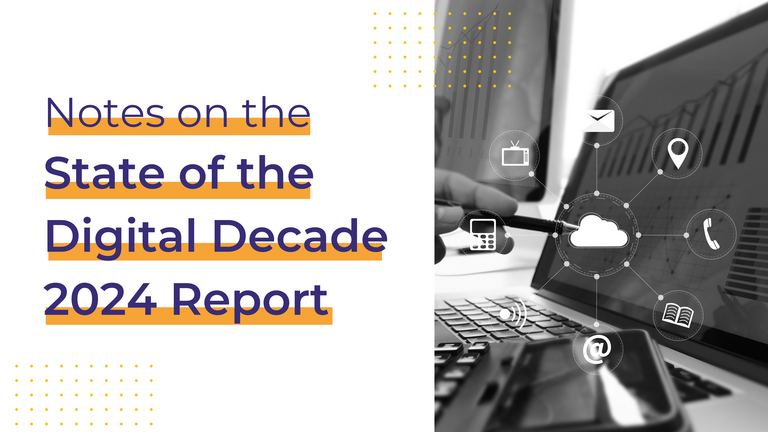According to the Report, the uptake of digital technologies by European businesses remains a concern. When it comes to cloud computing, the growth in the adoption rate of this technology was solely 7% in the past year, when the minimum expected to reach the 2030 target was 9%.
The sluggish uptake of foundation technology such as cloud, which is the backbone of large-scale digitalization, is a core issue to be tackled. Boosting cloud adoption is a crucial step to enable businesses across all sectors to innovate, grow, and stay competitive in the digital economy.
Other important indicators highlighted by the Report come from the 2024 Eurobarometer (“the Barometer”). The findings point out that 46% of Europeans believe that one of the issues with the biggest personal impact for them is the mishandling of personal data. On another front, less than half of European citizens believe that their digital rights are properly protected.
While the Barometer clearly points out to the lack of trust in digital products and services, it also shows that 3 out of 4 Europeans think that digitalizing daily services facilitates their lives. Against this background, the need for establishing and spreading safeguards in data protection and cybersecurity becomes increasingly evident.
In light of this, we must ask ourselves: how can we accelerate the uptake of cloud technologies across the EU? While there may not be a single – nor simple – answer to that, it is important to look at our existing toolbox and ensure that we are effectively utilizing the instruments at our disposal.
When considering existing tools and the robust framework put forward by the GDPR, it becomes critical to harness the benefits of compliance tools such as codes of conduct (Article 40 GDPR) and certifications (Article 42 GDPR).
As an organization specialized in the development and implementation of these tools – and notably as a two-time accredited monitoring body pursuant to article 41 GDPR – SCOPE Europe has been witnessing firsthand the unique potential of codes of conduct in the field of data protection.
These tools enable companies to legally demonstrate compliance with GDPR by voluntarily going through the assessment of a monitoring body duly accredited by the competent supervisory authority. This mechanism supports the harmonization of robust technical and organizational measures across the industry, guarantees accessibility for businesses of all sizes, and significantly supports customers in their risk assessments.
Trusted cloud services are indispensable for developing a resilient infrastructure that will drive the materialization of the digital decade. Therefore, the dissemination of effective codes of conduct can play an important role in supporting the EU's objectives.
